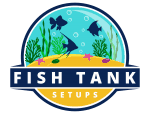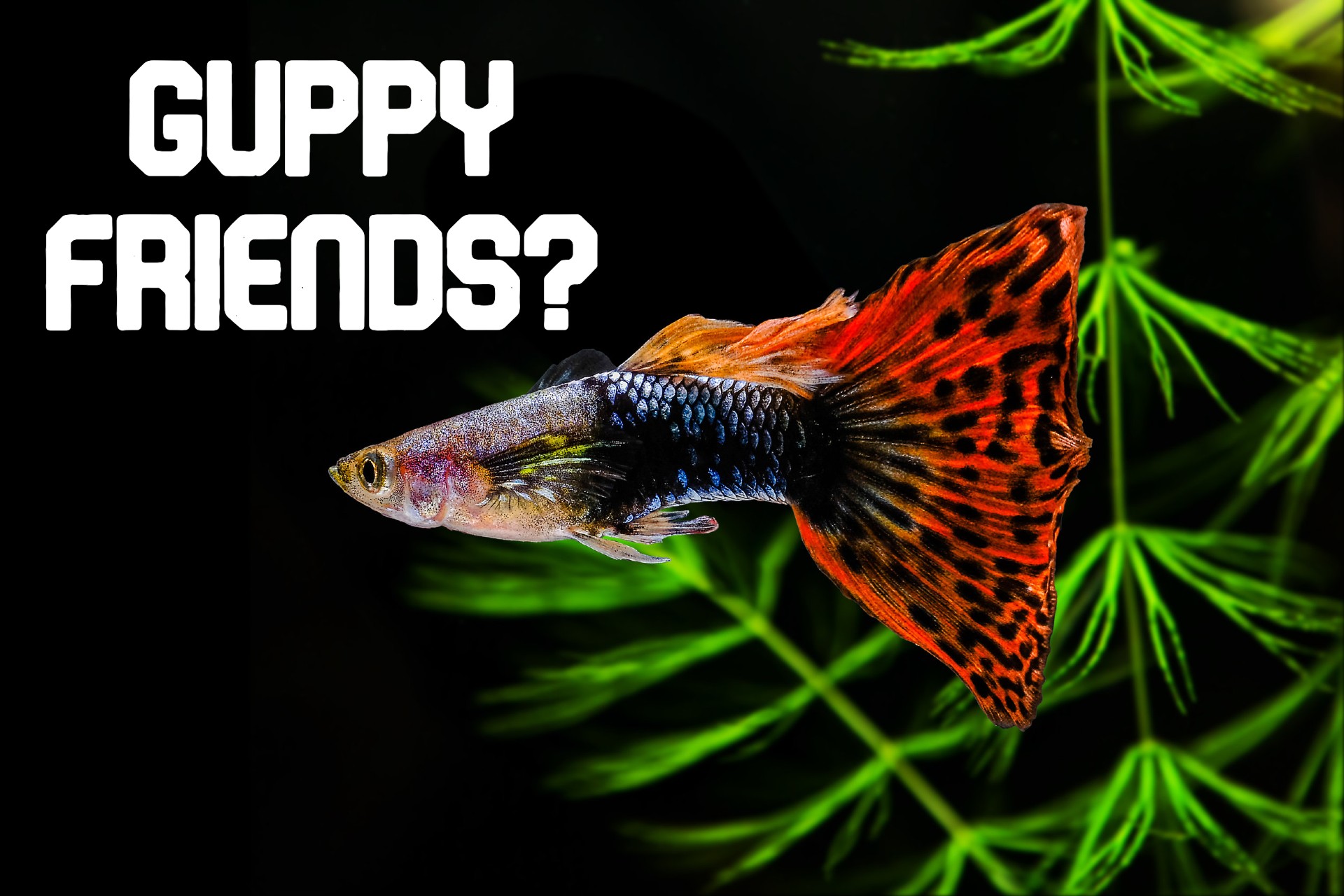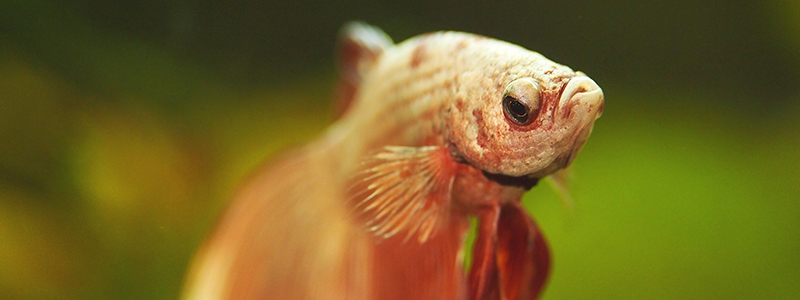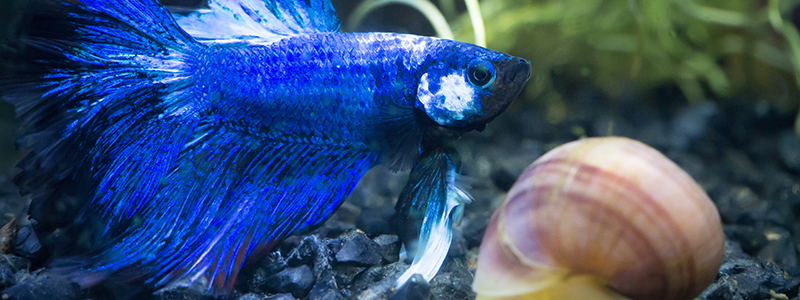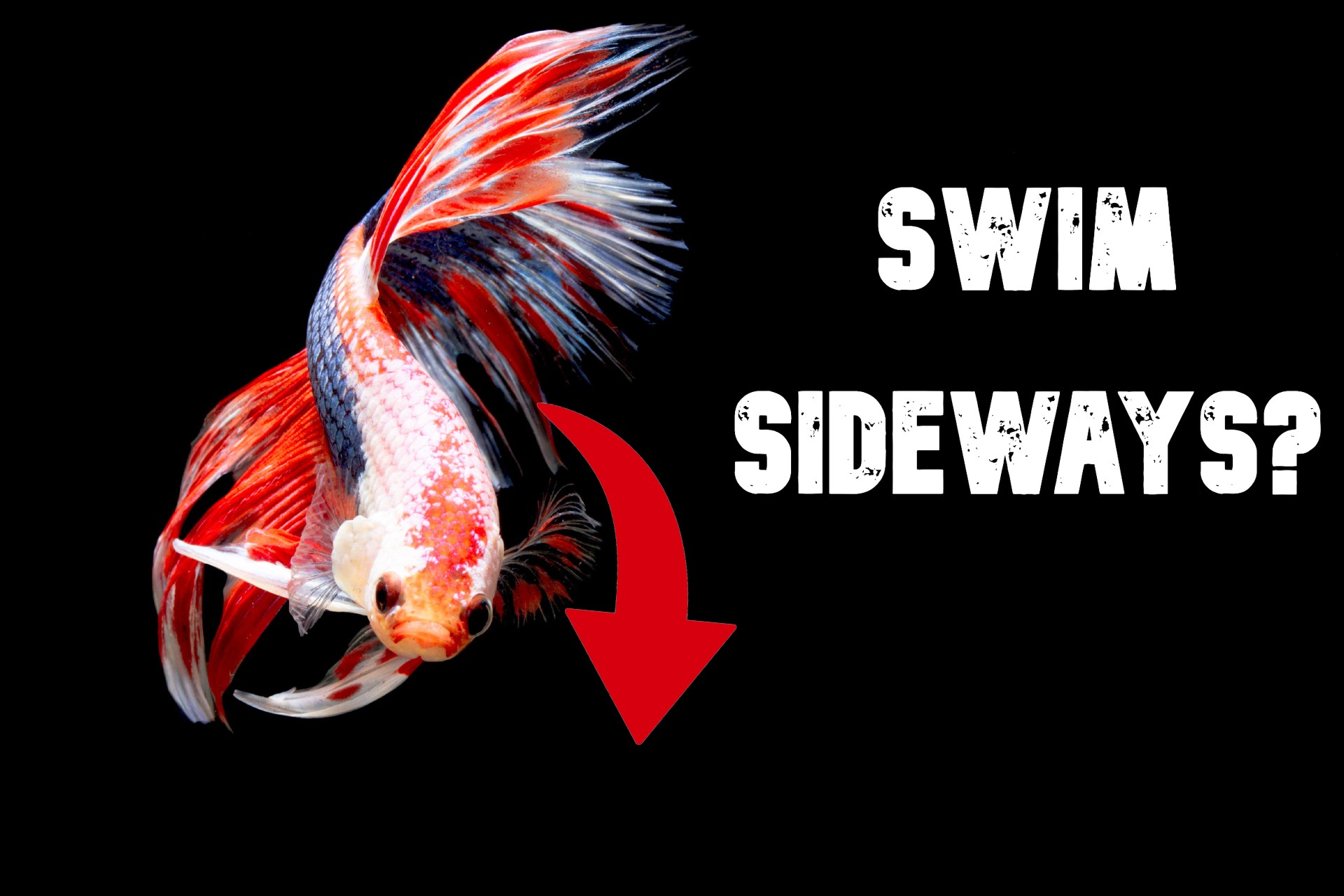Betta fish, also known as Siamese Fighting Fish, are beautifully colored fish that make a great first pet. As with any pet, the betta fish has certain dietary and nutritional requirements that help keep them happy and healthy. One of the biggest questions people have when they get their new, flowy friend is, “Can betta fish eat human food?” This may seem like a no-brainer, but it is an excellent question.
So, Can Betta Fish Eat Human Food?
So, here’s the deal. Betta fish can eat some human food, but it must be very specific. It all depends on the type of human food and how much and how often it is given. Just like any animal, including humans, betta fish prefer variety in their diet. And since you are a responsible betta fish parent, you’ll want to be sure that you’re giving them the proper food, perhaps even similar to what they would get in the wild. Serving them tiny cut-up portions of your delicious lemon and chicken dinner is not a good idea. We will cover what not to feed your betta fish in the next section.
Feeding betta fish human foods are similar to giving them commercial food: you must use little to no additives or fillers, and it should provide nutrition from their specific dietary requirements. It shouldn’t be a regular occasion, either. Most people resort to feeding their betta fish human food if they have run out of normal betta food.
It’s only meant to be as a supplement or a treat. here are a few human foods that have the seal of approval for your betta fish:
What Human Foods You CAN Feed Betta Fish
- Peas: kids may not like peas, but many bettas have been known to enjoy a pea every once in a while. They’re a fantastic source of fiber, which makes them an excellent aid for bloating and constipation. Just be sure that it’s mushy, cut into tiny pieces, and that you’ve removed the outer skin so that it’s easier for your fishy friend to chew and digest.
- Leafy and softened greens: includes lettuce, spinach, and cucumbers. Make sure they are sliced tiny and easy to nibble and digest. The cucumber can be boiled until it’s soft.
- Sweet corn: just a single, boiled kernel. Make sure the outer skin is removed, and it’s prepared just like the peas.
- Mango: a very tiny piece only every once in a while. It is essential that if the mango is not eaten within 30 minutes, then it must be removed from the tank or they could die. Mango is a delicacy to betta’s but can be fatal to the tank water if left for too long.
- Tuna, and shrimp: Tuna should be fed as raw if possible, or if from a can make sure it hasn’t been saturated in oil. Raw shrimp is an excellent choice as long as it is entirely unseasoned.
With any food, be sure to scoop out any uneaten pieces within a half hour. This helps to keep your betta tank from clouding over or attracting bacteria that could make them very sick.
What Human Foods NOT to Feed Betta Fish
This list could be endless since there are more human foods not to feed your betta than there is to feed them.
- Bread: Bread holds no nutritional value for betta fish.
- Plants: there is the misconception of setting your betta fish in a beautiful vase with a rooted plant and expecting them to live off of the roots. Since you now know that bettas are carnivorous, you know that they will most likely be dead in just a couple of weeks from starvation and lack of protein.
- Fibrous, stringy vegetables and fruits: these include carrots, beans, and bananas
- Citrus fruits: These will lower the pH of the tank causing the water to become acidic.
- Farm-grown animals: consider what type of meat your betta would come across in their natural environment. If a chicken or cow falls into the water, he’s not going to devour it. Bacon is also not considered safe meat to feed your betta, mainly because it’s cured with additives.
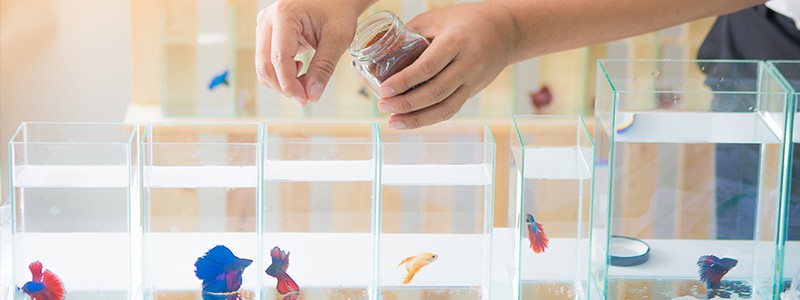
A Betta Fish’s Digestive Anatomy
Inside that gracefully small, scaly body is a systematic world that helps the betta fish to survive. One of the most important systems is the digestive system, and it begins at the mouth.
Mouth
Have you ever noticed how your betta fish’s mouth is turned upwards? An upturned mouth is evidence that the fish is a surface feeder, which means that they catch their meal at the surface of the water. This is why betta fish commercial food float instead of sink.
Teeth
Most people don’t realize that betta fish have teeth. Luckily, the teeth are very tiny and are useful in helping to break down whole bits of food. When watching your betta fish eat, you may notice that they seem to chew their food before swallowing it. This is your betta using their tiny teeth to help break down the food before it enters their digestive tract; that way, it’s easier to turn food into energy and waste.
Digestion
Betta fish have an incredibly short digestive tract and a tiny stomach. Their stomach is around the size of its eye and can be susceptible to bloating and constipation. Overfeeding is one of the leading causes of fish bloat, and can seriously affect their swim bladder, which helps them to get to the top of the tank for air and food. This is one reason why it’s essential to observe your fish’s feeding habits before committing to how much you feed them in a day.
Betta Fish Diet
Betta fish are carnivores and are sometimes affectionately called insectivores. If your betta was living in the wild, they would instinctively feed on insects and their aquatic larvae such as mosquito larvae. Eating plant-based foods is only a survival tactic if they are starving.
Commercial Foods
Because betta fish are carnivorous, they require a protein-rich diet. There are so many commercial foods that claim to be a well-balanced diet for a betta fish that it’s hard to choose from. A good rule of thumb is to look at the ingredients, and if the first one is plant-derived, then it’s not the best choice for your betta. In fact, the primary ingredient should contain protein as the first ingredient.
Many fish experts say that the rule of five still applies to fish food: if the first five ingredients are either unpronounceable or are not part of the betta fish’s regular diet in the wild, then it is not worth purchasing. Consider foods that consist of fiber and high-protein ingredients such as krill, fish, and shrimp.
The most common commercial fish foods used are:
- Pellets: the most common betta fish food. Betta fish experts agree that soaking the pellets in their water before serving is best so that it helps their digestive system to digest properly.
- Flakes: feed only flakes that are designed explicitly for betta fish. This ensures that it has a high amount of protein that bettas need to stay healthy.
- Freeze-dried: includes freeze-dried versions of some of their favorite live-fed foods, including bloodworms, brine shrimp, daphnia, and tubifex worms. Just as with the pellets, make sure they are soaked before serving since they are notorious for causing bloating and constipation issues. They are also better served as a treat and not a staple diet.
- Live or Frozen: most similar to that in the wild. Live or frozen betta fish food includes almost everything that would be freeze-dried, such as bloodworms, brine shrimp, mosquito larvae, mysis shrimp, and vinegar flies. Live or frozen food is the best option for your betta since it mimics their natural environment the most.
Fish Food Fillers
Most commercial fish foods are also packed with fillers, which are plant-based because they’re much less expensive to make. Your betta fish is dependent on you to provide them with a healthy, well-balanced diet because they can’t find it on their own in the wild. Make sure the commercial food that is purchased is at least 40% crude protein, and it has little to no plant meal, also known as soy meal.
Conclusion
Your betta fish relies on you to feed them a healthy diet that is as close to their natural environment as possible. Upon learning about the betta fish digestive system, required nutrition, and standard commercial foods, we can better understand what types of human foods are satisfactory to give them on occasion.
Animals love treats, and betta fish are no exception. If you are to give your betta fish human food, only give them what is provided in this article and only in moderation.
